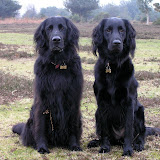 There were about 50 in my Garden yesterday. Whilst we were walking the dogs we saw quite a few in the forest. later karen sent me the following article..
There were about 50 in my Garden yesterday. Whilst we were walking the dogs we saw quite a few in the forest. later karen sent me the following article.."Apparently we are being invaded. Millions of exotic migrants are breezing into Britain,
In what could be the biggest influx of butterflies into this country in decades, millions have flown into Britain from the deserts of north Africa. Up to 18,000 were spotted sailing on the breeze across Scolt Head Island on the north Norfolk coast: 50 arriving every minute according to Natural England nature reserve staff.
The mass migration began last Thursday when large numbers were seen off Portland Bill in Dorset. Since then, our highest mountains, biggest cities and thickest forests have proved no obstacle: thousands of painted ladies have turned up everywhere, from central London to Dumfries and Galloway.
Painted ladies reach our shores every summer, but the last major migration was in 1996. This year, rumours of an impending invasion began circulating in late winter. A Spanish scientist, Constanti Stefanescu, reported seeing hundreds of thousands of them emerging in Morocco in mid-February after heavy winter rains in north Africa triggered the germination of food plants devoured by its caterpillars. Aided by favourable winds and unimaginable reserves of stamina, large numbers were seen in Spain during April. A few weeks later, they had reached France.
"We've had reasonable migrations before, but nothing this sudden," says Martin Warren, chief executive of Butterfly Conservation. "All the signs are it could be one of the biggest ever."
On the coast, all you may see is a flash of orange whizz past at head height. When they settle on garden flowers they are as striking as their less adventurous relatives, the red admiral and the small tortoiseshell. Certain weeds should be very afraid: painted lady caterpillars feast on thistles before emerging as an immaculate new generation of adult butterflies in August.
"It's really quite wonderful," says Matthew Oates, the National Trust's adviser on nature. "It may be that thistle-cutting or spraying is unnecessary this summer because the caterpillars will defoliate them for you."
Come September, the painted ladies will be off again: the British-born generation begin an epic reverse trip, drawn by a mysterious calling to the hot, distant land of their mothers and fathers."
Apparently another large influx expected tomorrow and Friday.





























